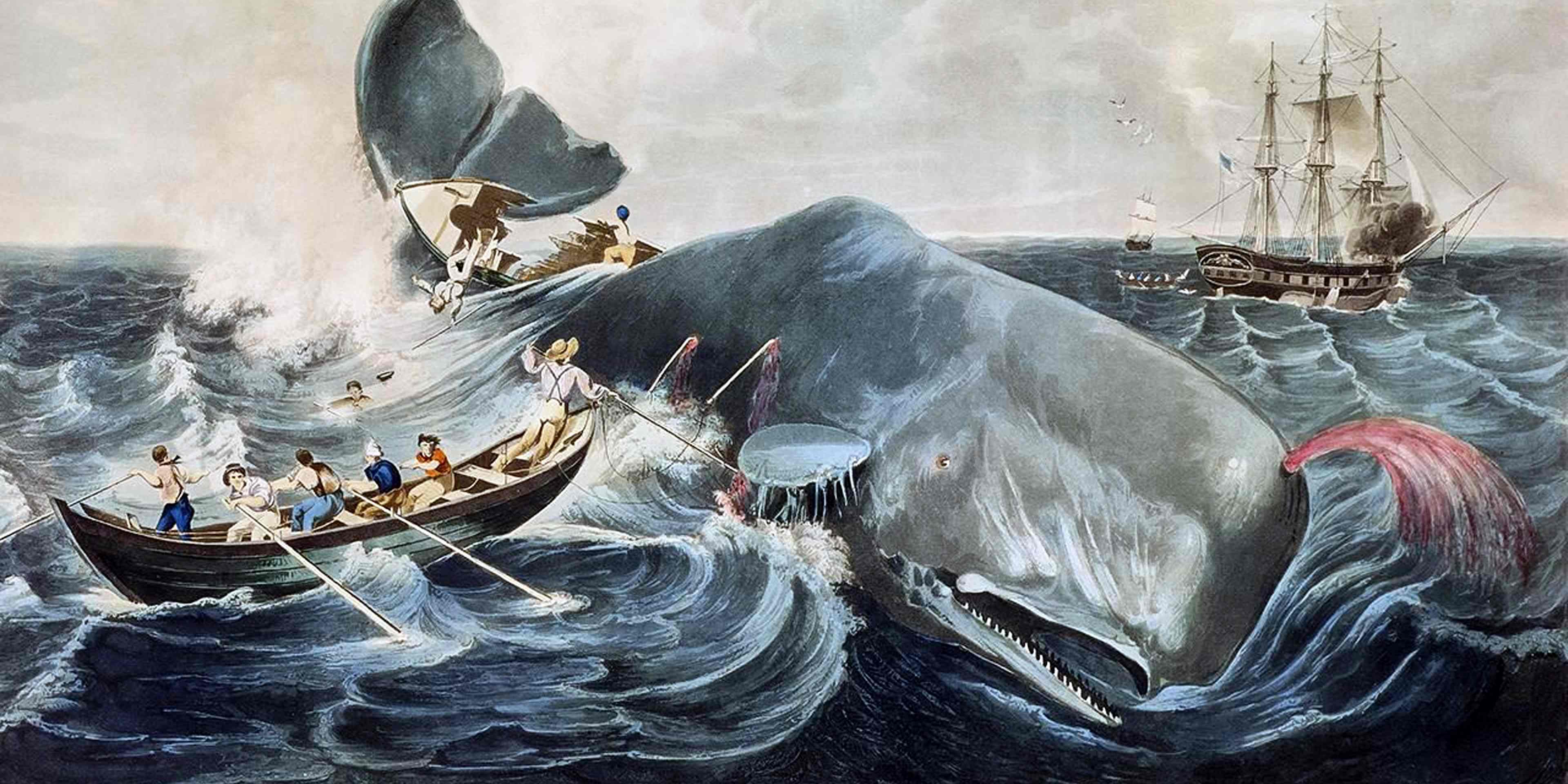On November 14, 1851, Moby-Dick is published. Now considered a great classic of American literature—with one of the most famous opening lines in fiction: “Call me Ishmael”—the book about Captain Ahab and his quest to catch a giant white whale was originally a big flop.
Its author, Herman Melville was born in New York City in 1819. As a young man, he spent time in the merchant marines, the U.S. Navy and on a whaling ship in the South Seas. In 1846, he published his first novel, Typee, a romantic adventure based on his experiences in Polynesia. The book was a success and a sequel, Omoo, was published in 1847. Three more novels followed, with mixed critical and commercial results.











